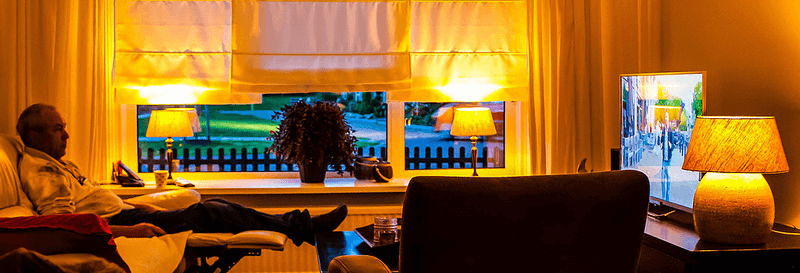Watching TV for hours and hours has become so prevalent that we now have a variety of words to describe the activity. “Binge-watching,” “marathon-viewing,” and “Netflixing” all describe the act of watching TV for a long period of time, whether it be finishing a whole season of a TV series or watching multiple episodes of different shows in one sitting. Although binge-watching TV can provide a momentary escape from reality, since most people tend to mindlessly eat while watching, it may also negatively affect our diet.
Lilian Cheung, the Director of Health Promotion at Harvard School of Public Health, says that the more television a person watches, the more he or she is likely to gain weight, or become overweight or obese. Not only does the act of watching TV provide an opportunity to eat, but the increased exposure to “unhealthy snacking and beverage marketing” encourages bad eating.
In an experiment by Brian Wansink, the director of Cornell’s Food and Brand Lab, those who watched an episode of SpongeBob SquarePants where SpongeBob was selling chocolate bars ate more than those who watched a different episode that wasn’t associated with food. Cheung explains that the satiety cues, or signals our body sends to our brain indicating that our stomach is full, are missed when we become so absorbed into the show in front of us. Hence, it becomes easy to overeat.
Image Source: Morsa Images
Interestingly, the kind of TV show we watch affects how much we consume. Watching more upbeat shows, like a comedy show, causes us to eat 55% less than if we were to watch a tearjerker. Action shows, on the other hand, cause us to eat 98% more–that’s basically twice as much–than if we were to watch another genre.
In explaining why watching a suspenseful action TV show causes us to increase our snacking rate by twofold, we must look at the hormone cortisol. Cortisol is released in our bodies when a stress reaction occurs, and it can cause us to overeat when levels are high in our body. Thus, when we watch an episode of The Walking Dead and Glenn is about to be attacked by a walker, our bodies may react by increasing levels of cortisol which can lead us to grab more of the snack that we’re eating.
Even though many people inadvertently fall victim to the guilty pleasure of snacking while binge-watching TV, it is important to keep in mind the negative effects that it has on our body. If we fail to make healthy diet choices and are negligent of what we eat (and how much we eat) when we watch TV, we fall at risk of becoming overweight and obese. The next time you go on Netflix, if you can’t limit yourself to just a couple of hours, just know that binge-watching TV doesn’t have to equal binge-eating.
Feature Image Source: Watching Tv by Sandra Vos











Action movies cause more eating? Cool! Also, the doctor statistics where more TV watching equals higher chance of overeating is probably both causation and association.